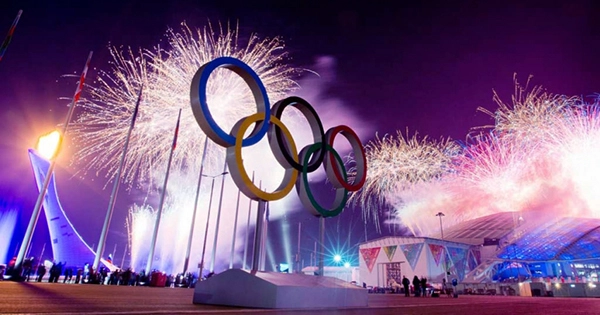According to a new study, if global greenhouse gas emissions are not drastically decreased, the number of cities capable of hosting the Winter Olympics could be limited to just one by the end of the twenty-first century. This comes as the current Winter Olympics in Beijing become the first Winter Olympics ever to be held with almost entirely manufactured snow. The study, which was published in the journal Current Issues in Tourism, looked at climatic data from the 1920s to the present, as well as future climate change simulations for later this century, to see where emissions targets are met and missed.
In a statement, Robert Steiger of the University of Innsbruck in Austria said, “Climate change is changing the landscape of the Winter Olympic Games and will, unfortunately, take away certain host towns that are famed for winter sport.” “Even in a low-emission future, most host locations in Europe are anticipated to be marginal or unreliable as early as the 2050s.” They also polled contemporary winter sports athletes about their favorite conditions for the Olympic disciplines of Alpine skiing, Nordic skiing, Freestyle skiing, Ski Jumping/Nordic Combined, Alpine Snowboarding, and Freestyle Snowboarding.
They were asked to rate a variety of climatic conditions (such as fog, fresh powder snow, chemically treated snow, icy surfaces, and wind) on a scale of unacceptable to “ideal for peak performance, safety, and fairness,” as well as the ideal temperature for competing in their sport and temperatures at which they would consider unsafe and unfair. “We wanted to know what climate and snow conditions make competition fair and safe from the athlete’s perspective,” Natalie Knowles, a former Canadian skier and current PhD student who was part in the study, said in a release. “And then figure out which Olympic hosts in the future could supply such conditions.”
According to the analysis, the likelihood of unfair and dangerous situations increases in all future climate change scenarios. However, if we stay to the Paris Agreement, the consequences will be greatly reduced. “Only 13 of 21 past host locations (all in the Northern Hemisphere) would remain reliable for snow sports contests in the 2050s and 12 in the 2080s in a low-emission future consistent with a successful Paris Agreement,” the team writes in the paper.
“A high-emission scenario had a much greater impact, reducing the number of climate-reliable places to 10 in the 2050s and 8 in the 2080s. The outlook for the Paralympic Winter Games, which will take place in March following the Olympics, was far worse.” Only one city, Sapporo, Japan, remains viable to host the Winter Olympics under one high-emission scenario.
The authors conclude, “The high emission pathway has a fundamentally different conclusion for the capacity to reliably supply fair and safe conditions for snow sports at Olympic Winter Games locales.” “By the mid-century, there are only four reliable hosts left (Lack Placid, Lillehammer, Oslo, and Sapporo), and by the end of the century, only one survives” (Sapporo). The athletes’ biggest concerns about fairness revolved around the quality of the snow, especially the dangers of manufactured snow, while the majority of safety concerns stemmed from the effects of greater temperatures on players and the snow.
“Too hot: body is too hot – difficult to develop tension, exhaustion – higher risk of injury… equipment (affected) in general,” one slalom skier explained to the researchers. “However, most boots become overly soft, resulting in a loss of control over the skis – dangerous!”
The researchers discovered that 89 percent of the winter athletes polled believe the climate problem is currently affecting competition conditions, and 94 percent believe it would have an impact on their sport’s future. “No sport is immune to the effects of climate change,” said Daniel Scott, a professor of geography and environmental management at the University of Waterloo in Canada. “Achieving the Paris Agreement targets is crucial to preserving snow sports as we know them and ensuring that the Winter Olympics may be held in locations around the world.”
















